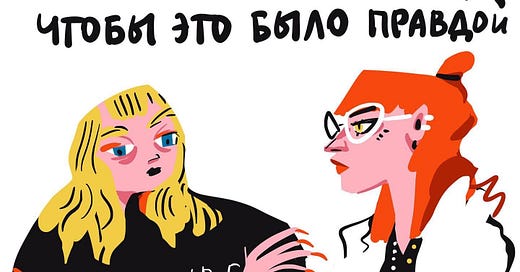Weekly news (June 7-14, 2022). First part: Ukraine
Today is the 14th of June, 2022. Here's news that made my week and defined thoughts and expectations for the near future. Ukrainian conflict and around it.
First of all I want to congratulate us all with Britney Spears’s marrage. Not that we cared to know, but all the fashion media and even big media, I don’t mention, social media, were taken by the event, by her choice and by another kiss with Madonna. On the other hand there was Ukrainian news, talks about the possible recession in the USA, protests against high energy prices, and other stories.
I will skip Britney, if you don’t mind. The main subject is still Ukraine. The information flow slowed down and instead of actual news most of the time the war conflict is used either as an explanation for food or energy crisis, or for common instability in the world. Suddenly it became a reason for everything bad, but the reason that can’t be solved only by war for independence, especially when the united Western allies started to show the signs of fundamental disagreement on the Ukrainian, Russian and European future after the war.
Now it seems Russia in isolation doesn’t look like an optimal solution for the “free world”, basically because the rest of the world doesn’t get the picture of that particular version of freedom and prefers to trade with Russia. That makes the West think about the threat of China’s growing influence and the speed at which Russia and China are getting closer, only because Russia has no choice but to look for different markets and different opportunities moving from Europe and the USA to other countries. The first circle of potential allies is the circle of “pariahs” and “bad guys”. As far as there’s rich history between Russia, later the USSR, and those Eastern, African, Middle Eastern and South American countries, we can watch as the big Russian battleship turns around and changes the course.
And though it’s difficult to draw Russia worse as it was already pictured in the media, the bright Ukrainian image starts to fade. And it’s not just accumulated tiredness from the subject when people get to use to the picture and stories about the war and its refugees, and the language, the same rhetorics around it doesn’t look enough to explain the consequences of the sanctions for those who invented them, the Ukrainians become more and more distinctive as a nation with its problems. Meanwhile there are other nations that are in worse conditions and descrimination in approach to them shown by the West is obvious. Russia as an example of the country standing for its interest against the US and its 30 allies, alone, inspires outfits to stand for themselves and unite.
First sign that something is changing in the European-Ukrainian relationships, that some of the block’s countries are thinking about effective negotiations with Russia and the potential conditions that may be comfortable for Russia to accept and for Ukraine to give in, were a series of meetings between Western allies without Ukraine representatives. They discussed the possible new sanctions and opportunity of secondary sanctions against those who still trade with Russia, an Italian suggestion to work on the ceasefire conditions that involves
“Ukraine committing to neutrality with regard to NATO in exchange for some security guarantees, and negotiations between Ukraine and Russia on the future of Crimea and the Donbas region”.
The problem is that neither Ukraine, nor Russia are willing to come back to negotiation at the moment, at least not on the same conditions that were discussed a couple months ago in Turkey. Russia is seizing more and more Eastern and Southern Ukraine. The taken territories are at the different stages of integration into the Russian economy - the process was fastened by destruction and Ukrainian policy to cut the occupied areas from its bank system, water and gas supplies, leaving already devastated civilians in the conditions where the only support they can receive comes from Russia. So Russia started to work on social programs, on cleaning the ground and reconstruction projects. Needless to say, that burden on the federal budget wasn’t planned and in the conditions of the growing isolation it will cost more than military funding. Meanwhile the “Red Army” (it’s touching how the name stuck to the contemporary Russian militaries in Italian press) almost reached the supposedly planned target, Ukraine pressures the West for new weapons and support that is getting more and more expensive for the allies.
And that’s the major problem that shows how badly the miscalculated strategy can hit the half world’s economy. That includes the US tactic to wash Ukraine in money, that brings not just disappointment among the Americans in general, who are witnessing the worst inflation for the last decades, and Russia doesn’t seem to have the same problem even under the severest sanctions. But it also raises questions about the spending of those funds by Ukraine - one of the most corrupt countries in the Eastern Europe, not to mention it’s getting too expensive to promote the war even if it’s sold to the public as the rightful one.
Intelligence agencies complain that the information they have on the actual Ukrainian situation is dangerously incomplete. In fact American militaries know more about Russia and its plans than about their own protege’s concrete tactics, real casualties and equipment losses, not about the economic state at the moment. The Ukrainian propaganda machine works so well that in a completely shadowed economy and quite chaotic governmental management it gets impossible to distinguish when they tell the truth and when they use numbers only to make their complaints and demands look stronger. The only thing that is obvious is that the image of a strong and brave Ukrainian army isn’t that solid anymore, and the Russian losses in the beginning of the conflict could be the result of their own mistakes and systematic errors of their intelligence services and inadequate commanding, which was changed altogether with the strategy in April.
“Ukraine’s rhetorical step-down is striking compared with the bullishness it briefly enjoyed in April after its troops all but routed Russian forces around the capital and forced them to retreat close to the border” (Financial Times)
The proof that the problem of low morale among territorial defence fighters exists is a draft bill sent to Ukraine’s parliament on May 5 that would “have given officers greater leeway to punish rebellious soldiers”. And the disagreement on the future of that war, its results and the way it is handled among the country’s management as well, because that bill was considered and rejected less than two weeks later, unlike many previous way more radical initiatives accepted during the last year and during the months after the invasion.
President Zelenskyy of Ukraine can’t be counted as a reliable source of information about the intentions and victory vision when he publicly changes his point of view, leaving President Biden of the United States of America thinking that he’s sure “ultimately this war 'will only definitively end through diplomacy”, and declaring in his interview to the Financial times exactly the opposite:
“Victory must be achieved on the battlefield… We are inferior in terms of equipment . . . we are not capable of advancing . . .[and] we are going to suffer more losses.”
The problem of the Ukrainian official speakers is that they can’t hold themselves from aggressive and disrespectful statements addressed to any meaningful politician who disagree with the radical position on the account of Russia, the sanctions strategy, the amount and the quality of the military or financial help and, lately, even on conditions the European countries made for the Ukrainian refugees. People started to return home, for some reason that became a problem for the authorities. At least, that was used as an argument in the public polemic about Germany and its position on Ukraine by the Ukrainian Ambassador to Germany, Andriy Melnyk in the BILD talk "The Right Questions". Also he added:
"...what my compatriots hope is that the chancellor will come to Kyiv with a clear commitment to EU membership.[…] It will take years, we don’t want back doors, we want a fair process”.
There’re few problems with that: first of all it’s really strange to learn about the commitment to EU membership from the side of the country that needed an active war to make the process move from the stage it stuck at for years. And the second is the problems were the same as they are now - incredibly high level of corruption, broken social system, unfunctional economy (that was a bit better after the foreign dotations started) and the civil rights and freedoms. There’s no fair process, there’s only the need to end that war and raising public pressure that can make the EU members agree on the urgent Ukrainian membership. But the burden of its incorporation will fall on the shoulders of the strongest economies in the Union - Germany, France and a couple of others. To read on the subject, here’s a link: “Allowing Ukraine into the EU is not the right move for now” (The economist).
Together with French President Emmanuel Macron and Italian Prime Minister Mario Draghi, Olaf Scholz wants to travel to Kyiv before the G-7 summit in June, and there’s a choir of angry voices that says that he looks weak and makes the country look the same after repeated acts of disrespect. The same goes to Macron, whose position on Russia and Ukraine may cost him the majority in the Parliament after ongoing elections. To summarise the disappointed European public’s position it’s enough to ask one question: “How many times have they already been to Kyiv? Why not visit Moscow for a change?”
The cynical note to the message adds German attitude to their tank supplies to Ukraine that they thought to send but without ammunition, then Spain said that they want to send some of those they got from Germany but they don’t need, but also decided to postpone, because those “will be first German tanks that can enter the Russia after World War II”, which is unwanted publicity for the country. As you see no one believes Ukraine will keep their word not to cross Russian borders after the incidents of shelling Russian objects, and that plays its part in the decision making on the subject of more powerful military equipment donations.
That’s all with Ukrainian news, the rest of the stories happened in my simulacrum and Instagram visuals, they inspired on my feed, - in the next article tomorrow.
My platforms
Instagram: https://www.instagram.com/zakharova_kaetano
Twitter: https://twitter.com/olga_kaetano
Telegram: https://t.me/f_simulacrum
Tumblr: https://fashionistaru.tumblr.com
If you like F! Simulacrum and want to help make it even better, give me feedback, point out factual errors or typos, or send me news subjects you want to describe. My email: o.zakharova@adlifestudio.ru
Substack says you can now read my F! Simulacrum in the new Substack app for iPhone. And it will be easier and more comfortable.





